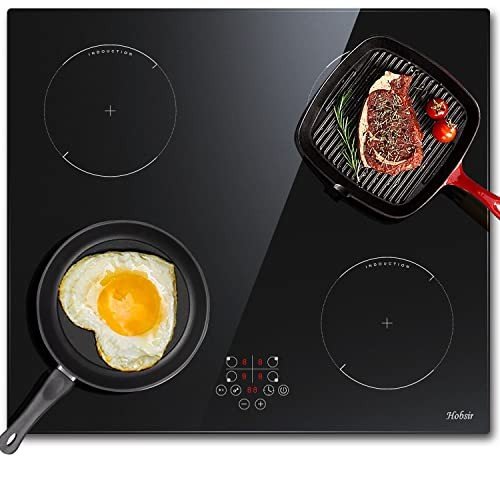Understanding Cooker Hobs and Ovens: A Comprehensive Guide
In modern-day kitchen areas, cooker hobs and ovens are basic appliances that specify cooking routines and choices. Selecting Ovens Sales of these gadgets can considerably enhance cooking experience, enhance effectiveness, and even elevate home aesthetics. This article will explore different elements of cooker hobs and ovens, clarifying types, features, benefits, and maintenance suggestions, while also addressing typical queries.
Types of Cooker Hobs
Cooker hobs come in different types, each with distinct features dealing with various cooking styles. Here's a summary of the most common types:
| Type | Description | Pros | Cons |
|---|---|---|---|
| Gas Hob | Utilizes gas burners for heating; offers immediate temperature level control. | Instant heat and exceptional control. | Requires a gas connection; may be less safe. |
| Electric Hob | Operates using electric coils or smooth surface; warms up gradually. | Even heat circulation; simple to tidy. | Takes longer to warm up; less control. |
| Induction Hob | Uses electromagnetic fields to heat pots straight, making it energy efficient. | Fast cooking; energy-efficient. | Requires compatible cookware; more expensive. |
| Halogen Hob | Employs halogen bulbs for instant heat; provides immediate temperature level modification. | Incredibly fast heating; visible heat. | Takes in more power; might not evenly heat. |
Selecting the Right Hob
When choosing a hob, think about the following elements:
- Cooking Style: Do you choose the accuracy of gas, the benefit of electric, or the efficiency of induction?
- Pots and pans Compatibility: Ensure your pots and pans are compatible with the type of hob.
- Kitchen Layout: Space and design typically dictate the kind of hob that matches your kitchen.
Kinds of Ovens
Also, ovens have evolved considerably, using different cooking approaches that can complement particular cooking styles. Here are the prevalent kinds of ovens:
| Type | Description | Pros | Cons |
|---|---|---|---|
| Traditional Oven | Traditional baking oven that uses electric or gas heat from the top and bottom. | Versatile; helpful for baking. | Longer preheat and cooking times. |
| Convection Oven | Uses a fan to circulate hot air, permitting even cooking and faster baking times. Distributes heat evenly. | Faster cooking; even browning. | A little more pricey; might dry food out. |
| Steam Oven | Cooks food utilizing steam, maintaining nutrients and moisture. | Healthier cooking; keeps food taste. | Takes longer to prepare; more expensive. |
| Microwave Oven | Utilizes electromagnetic radiation to heat food rapidly. | Immediate cooking; suitable for reheating. | Limited cooking approaches; might impact texture. |
Picking the Perfect Oven
When selecting an oven, keep these factors in mind:
- Cooking Habits: Are you a regular baker or more likely to reheat leftovers?
- Area Requirements: What are the dimensions of your kitchen?
- Budget: Consider not just the purchase rate however likewise energy effectiveness over time.
The Importance of Cooker Hobs and Ovens in Cooking
The ideal combination of cooker hob and oven can improve culinary skills, enabling food enthusiasts to experiment and create a large range of meals. Here are a few factors why these devices are important:
- Efficiency: Modern hobs and ovens included functions that optimize cooking times and energy usage.
- Flexibility: Different cooking approaches (bake, grill, roast, steam, etc) broaden the series of dishes one can prepare.
- Aesthetic Appeal: Stylish designs can elevate the overall look of a kitchen, making it both practical and inviting.
Often Asked Questions (FAQs)
1. What upkeep do cooker hobs and ovens need?
- Regular cleansing after usage to prevent accumulation.
- Routine checks for gas leaks (for gas hobs).
- Ensuring the electrical connections are safe.
2. Can I utilize any pots and pans on an induction hob?
No, induction hobs require ferrous cookware (i.e., magnetic) to operate. This suggests stainless steel and cast iron work, while glass and aluminum pots may not.
3. How do I determine the ideal size oven for my kitchen?
Step your readily available space and think about the volume of cooking you usually carry out. Standard ovens vary in size, and larger designs usually have extra functions.
4. Are convection ovens much better than traditional ovens?
It depends on personal choice. Convection ovens offer faster and more even cooking however might not be perfect for all baking recipes, especially those needing specific temperature levels.
5. What is the average life expectancy of a cooking hob and oven?
With proper care, both hobs and ovens can last anywhere from 10 to 20 years, depending upon frequency of usage and upkeep.
Selecting the ideal cooker hob and oven not just streamlines the cooking process however can likewise redefine one's culinary experience. Understanding the different types, their advantages, and maintenance will empower customers to make informed choices, making sure that their kitchen is equipped to handle meals from the most basic to the most intricate. Understanding about the capabilities of these necessary home appliances allows for cooking imagination and efficiency, eventually causing a more enjoyable cooking journey.

